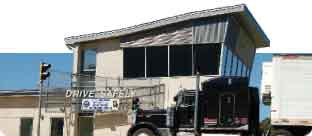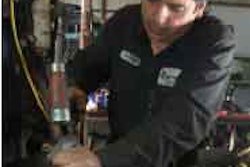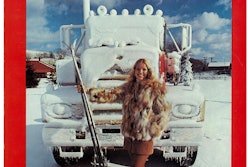
If you missed the deadline for filing your tax return, it’s probably for one of two reasons: You don’t have the money to pay the tax or you don’t have a system that allows you to easily gather the information needed to complete your return. Address the second, and you’ll get closer to fixing the first.
The owner-operator bookkeeping system I’ve developed is as simple as one can be and generates the best reports possible.
I run my small trucking business with just three reports. A monthly business report shows income and expense broken down by category. It also shows income per mile, cost per mile and each expense as a percentage of revenue. It tells me exactly what is going on in my business and, more importantly, how to improve it.
The other reports are a standard profit and loss statement (P&L) and a year-end tax report for your tax preparer.
A simple process for gathering and organizing your paper receipts, combined with an online software tool, will allow you to input your data with the least amount of effort and create the reports:
• Go to an office supply store and pick up a 21-pocket expanding folder, labels for the folders, a stapler and a desktop calculator with a register tape.
Fill out the pocket labels with the categories listed on this page. Some will not apply if you don’t employ another driver or have space devoted to an office or shop. Every category must be business-related. For example, car expenses apply only to business-related trips, such as to your truck dealer.
• When you get a receipt, drop it in the corresponding pocket. Fuel, settlements – any cost or revenue document should have a place to be filed.
• At the end of each month, schedule two hours to do your accounting. You will soon find you can get this done in less time.
• Add the receipts in the folder’s first pocket. Staple the register tape to the corresponding pile of receipts and drop them back in the same slot. Since they are stapled, they won’t get mixed with new receipts. Do the same for the remaining categories.
• Supplement this system by starting to write down your odometer reading on the first of every month. This allows you to track total monthly miles and then calculate your true income per mile and all of your costs per mile.
• Use the online software I have created for this system. You can find it at mygauges.com. Log into the system and make one entry for each of your categories, and then enter the data from your settlements. The system does the rest, creating the reports I described earlier.
I will be hosting webinars on this topic for those who’d like to learn more about the process. Sign up for my newsletter at letstruck.com for the details.
You can skip the computer
If you’d prefer a paper-based record-keeping system, you can still generate the same key reports:
• Make a ledger entry with the months across the top row and a category list down the left.
 Scale fee receipts are among expenses that should be filed for income tax purposes.
Scale fee receipts are among expenses that should be filed for income tax purposes.• As you total each category, write the amount in the corresponding ledger space. If you are proficient with spreadsheets, you could create your own reports from the data. If not, your accountant can use the ledger to create the reports for you.
• Divide each category total by miles for the month to create your cost-per-mile for the category. This can be recorded in a dual column for each category or on a separate ledger sheet.
Expense categories
• Car expense
• Fees & commissions
• Insurance
• Interest paid
• Legal & accounting
• Office supplies
• Rent or lease
• Repairs & maintenance
• Non-office supplies
• Taxes & license
• Travel
• Meals & entertainment
• Utilities
• Wages & payroll
• Fuel, oil & additives
• Scale fees
• Tolls & parking
• Load & Unload
• Physicals & drug testing
• Uniforms & laundry
• Settlements
Kevin Rutherford is an accountant, small-fleet owner and the host of “Trucking Business & Beyond,” which airs on Sirius XM Radio’s Road Dog Trucking Radio. Contact Rutherford through his website, LetsTruck.com.









